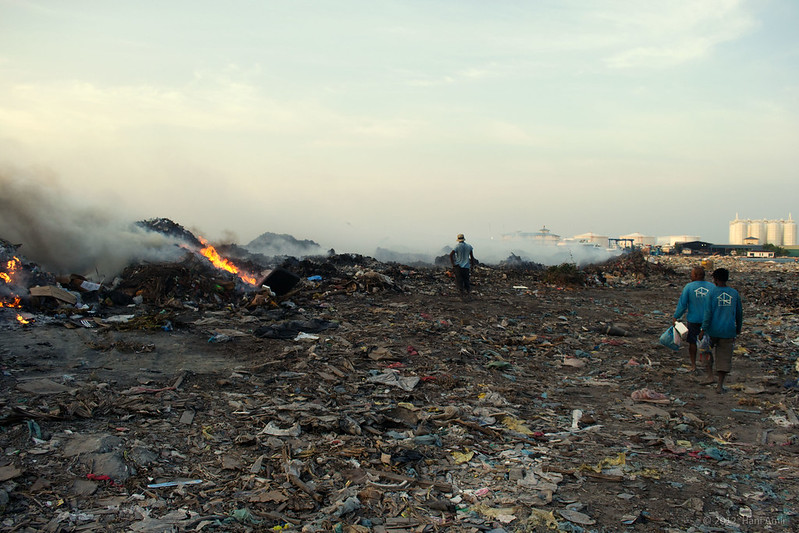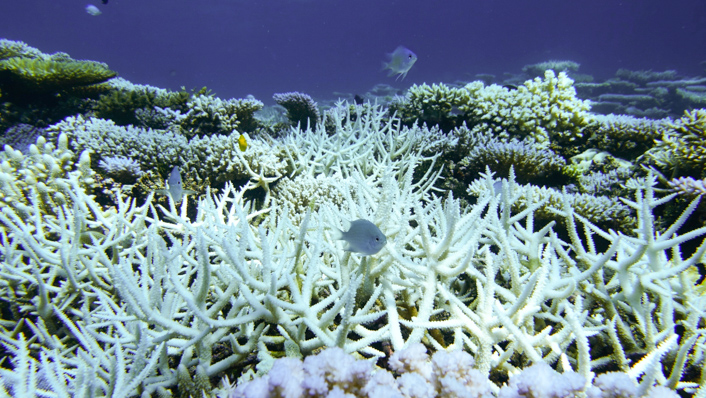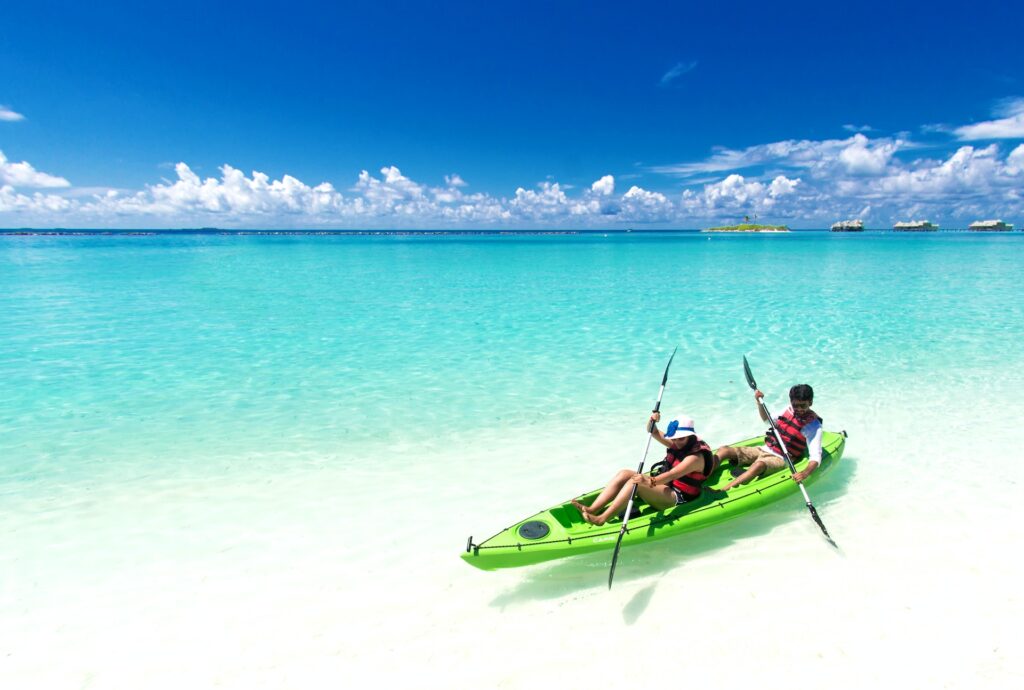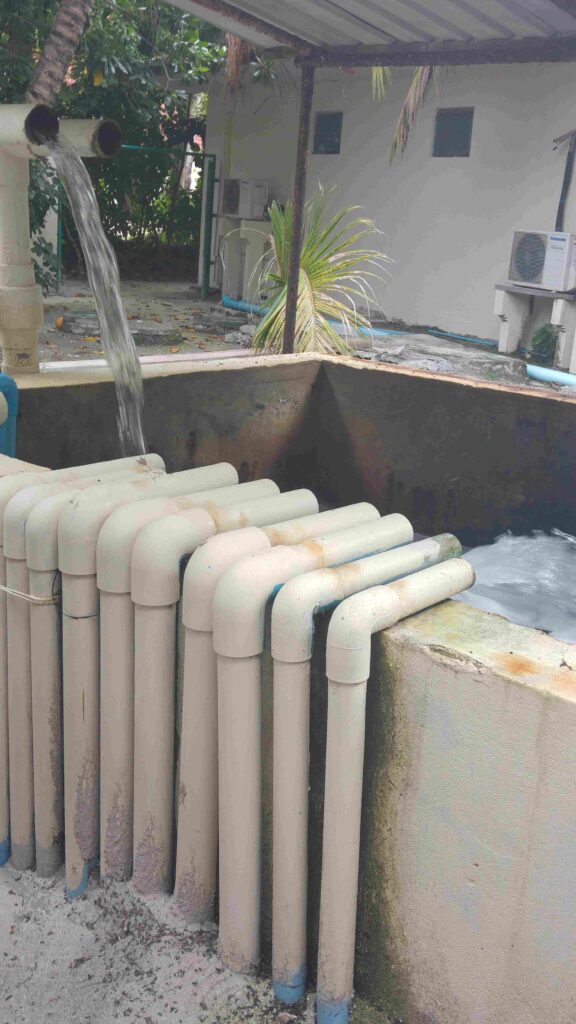Eco travel in the Maldives aims to balance the enjoyment of this paradise with sustainable practices that protect its delicate ecosystem. This article explores the impacts of tourism, the move towards sustainable practices, and the vital role tourism plays in the Maldivian economy.
Tourism Impact on the Maldives
Tourism has become the lifeblood of the Maldivian economy, driving development and providing numerous job opportunities. However, it also poses significant challenges to the environment. Understanding both the positive and negative impacts of tourism is essential for promoting sustainable travel practices.
Positive Environmental Impacts of Tourism in the Maldives
Despite its challenges, tourism can have positive environmental impacts in the Maldives. Many resorts and tour operators have adopted eco-friendly practices, contributing to environmental conservation and sustainability:
Marine Conservation
Many resorts participate in reef restoration projects, where coral fragments are transplanted to damaged reefs, promoting regrowth and biodiversity.
Waste Management Initiatives
Resorts like Soneva Fushi have implemented comprehensive waste management systems, turning waste into resources through recycling and composting.

Renewable Energy
Some resorts are investing in solar power and other renewable energy sources to reduce their carbon footprint and reliance on fossil fuels.
Environmental Education
Tourist interactions with marine biologists and conservationists raise awareness about the importance of preserving marine ecosystems.
Negative Impacts of Tourism in the Maldives
Unfortunately, the negative impacts of tourism in the Maldives can overshadow its benefits if not properly managed:
Coral Reef Damage
Construction of resorts and increased boat traffic can cause physical damage to coral reefs, which are crucial for marine biodiversity.

Pollution
Waste management is a significant challenge. Improper disposal of waste and sewage can lead to ocean pollution, affecting marine life and water quality.
Overfishing
The demand for seafood by tourists can contribute to overfishing, threatening local fish populations and the livelihoods of local fishermen.
Carbon Emissions
The influx of tourists often means more flights, which contribute significantly to greenhouse gas emissions and climate change.
Sustainable Tourism in the Maldives
To mitigate these negative impacts, sustainable tourism practices are being increasingly adopted in the Maldives. Sustainable tourism involves making a positive impact on the environment, society, and economy, ensuring that future generations can enjoy the natural beauty of the islands.
Eco-Friendly Resorts
Many resorts are designed with sustainability in mind, using local materials, renewable energy, and efficient water use systems.
Marine Protected Areas (MPAs)
The Maldives has established several MPAs to protect critical marine habitats from overfishing and other harmful activities.
Community Involvement
Encouraging tourists to engage with local communities supports local economies and promotes cultural preservation.
Environmental Certifications
Resorts are seeking certifications like Green Globe and EarthCheck to demonstrate their commitment to sustainability.
Importance of Tourism in the Maldives
Tourism is the cornerstone of the Maldivian economy, providing over 60% of the GDP and employing a significant portion of the population. Its importance cannot be overstated:
Economic Growth
Tourism revenue is crucial for national economic growth, funding infrastructure, healthcare, and education.
Job Creation
The industry provides employment opportunities in various sectors, including hospitality, transportation, and retail.
Cultural Exchange
Tourism fosters cultural exchange, allowing locals and visitors to share and celebrate their traditions and customs.
Environmental Funding
Tourism revenue often funds environmental conservation projects, helping to protect the natural beauty that draws visitors to the Maldives.
Eco-Friendly Activities
Eco-friendly activities in the Maldives allow visitors to enjoy the natural beauty of the islands while minimizing their environmental impact. Popular activities include:
Snorkeling and Diving
Explore the vibrant coral reefs and marine life in a sustainable manner by choosing operators that follow eco-friendly practices.
Kayaking and Paddleboarding
These low-impact activities offer a peaceful way to explore the lagoons and coastlines without disturbing the environment.

Nature Walks and Bird Watching
Engage in guided tours that focus on the local flora and fauna, promoting awareness and conservation.
Volunteering
Participate in beach cleanups or conservation projects to contribute directly to preserving the environment.
Transportation and Carbon Footprint
Transportation is a significant contributor to the carbon footprint of travel to the Maldives. To reduce this impact:
Offsetting Carbon Emissions
Many airlines and travel companies offer carbon offset programs where travelers can compensate for their flight emissions by funding environmental projects.
Use of Electric Boats
Some resorts are adopting electric or solar-powered boats for transfers and excursions to reduce reliance on fossil fuels.
Public Transport and Shared Transfers
Opt for public ferries or shared transfers instead of private speedboats to minimize emissions.
Challenges and Future Directions
The Maldives faces several challenges in achieving sustainable tourism, but there are promising future directions:
Climate Change
Rising sea levels and increasing temperatures threaten the very existence of the Maldives. Continued international cooperation and local adaptation strategies are crucial.
Waste Management
Improving waste management infrastructure and practices is essential to prevent pollution and protect marine life.

Education and Awareness
Ongoing efforts to educate both tourists and locals about sustainable practices can foster a culture of conservation.
Innovation in Sustainability
Embracing new technologies and sustainable practices can help mitigate environmental impacts while supporting the tourism industry.
Eco travel in the Maldives is essential for balancing tourism with environmental stewardship. While tourism brings substantial economic benefits, it also poses risks to the fragile ecosystem. By adopting sustainable practices, both tourists and the tourism industry can ensure that the Maldives remains a paradise for future generations.
FAQ
Is the Maldives eco-friendly?
The Maldives has made significant efforts to become more eco-friendly, recognizing the importance of preserving its natural environment. Many resorts and local initiatives focus on sustainability, including solar energy use, waste management, and coral reef protection. However, challenges remain due to the country’s reliance on tourism and the environmental impact of development and climate change.
What is eco-tourism in Maldives?
Eco-tourism in the Maldives involves responsible travel to natural areas that conserves the environment and improves the well-being of local people. It includes activities like snorkeling, diving in marine protected areas, staying in eco-friendly resorts, participating in conservation programs, and engaging with local culture in a sustainable manner.
Which is the greenest island in the Maldives?
One of the greenest islands in the Maldives is Soneva Fushi, located in the Baa Atoll. The resort on this island is renowned for its commitment to sustainability, featuring solar power, waste-to-wealth recycling programs, organic gardens, and initiatives to protect marine life.
What is the most eco-friendly travel?
The most eco-friendly travel involves minimizing your carbon footprint and environmental impact. This includes choosing destinations committed to sustainability, using public transportation or eco-friendly travel options, supporting local and eco-conscious businesses, reducing waste, and respecting local ecosystems and cultures.
Why is tourism not sustainable in the Maldives?
Tourism in the Maldives faces sustainability challenges due to over-reliance on natural resources, pollution, and environmental degradation. The construction of resorts and infrastructure can damage coral reefs and marine habitats. Additionally, the high volume of tourists can strain local resources and contribute to waste and water management issues.
What are the disadvantages of tourism in the Maldives?
Disadvantages of tourism in the Maldives include environmental degradation, such as coral reef damage and pollution, overuse of natural resources, and cultural impacts on local communities. The construction and operation of tourist facilities can lead to habitat destruction and increased waste, challenging the country’s fragile ecosystem.
Is tourism beneficial to Maldives?
Tourism is a vital part of the Maldivian economy, providing significant employment opportunities and contributing to GDP. It helps fund conservation and infrastructure projects. However, balancing economic benefits with environmental sustainability is crucial to ensure long-term positive impacts.
What is an eco-tourist?
An eco-tourist is a traveler who seeks to minimize their environmental impact and contribute positively to the places they visit. Eco-tourists prioritize sustainable practices, support conservation efforts, engage with local communities, and prefer eco-friendly accommodations and activities.
What is an eco-tourist facility?
An eco-tourist facility is an accommodation or service designed to minimize environmental impact and promote sustainability. These facilities often use renewable energy, implement waste reduction practices, support local communities, and engage in conservation efforts. Examples include eco-friendly resorts, lodges, and tour operators that prioritize environmental responsibility and sustainability.